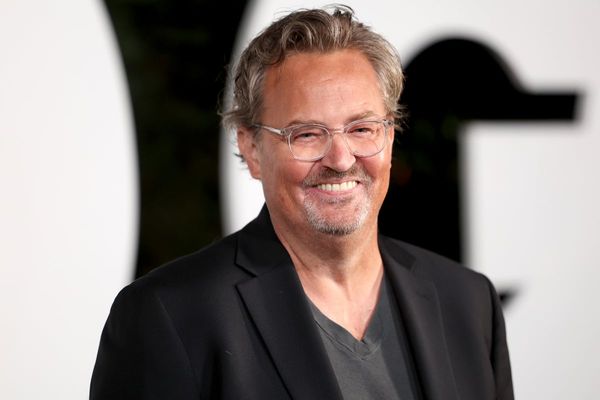THE BBC is “taking its cue from Donald Trump” by proposing to alter its drama output in a bid to win the trust of Reform UK voters, an expert on mainstreaming the far-right has said.
BBC bosses including director-general Tim Davie have reportedly drawn up plans to win over Reform voters due to a belief their news and drama output is creating “low trust issues” with supporters of Nigel Farage.
Minutes from a meeting of the broadcaster's editorial guidelines and standards committee from March, revealed by The Byline Times, show that BBC News CEO Deborah Turness gave a presentation in which she discussed plans to alter "story selection" and "other types of output, such as drama" to win the trust of Reform voters.
Professor Aurelien Mondon, an expert at the University of Bath on the mainstreaming of the far right, said he is concerned the BBC are “caving in” to a backlash against equality and diversity with these plans, largely spearheaded by US President Trump.
Asked about proposals to alter drama output specifically, Mondon told The National: “This is the most concerning element to me.
“I think what we are seeing here is a pushback against equality and diversity and inclusion and it seems to me the BBC is taking its cue from Donald Trump, quite directly.
“It seems they are caving to this backlash against equality, diversity and inclusion.
“My worry is that they are jumping the gun and we’re seeing that not just in the media, we’re seeing it in universities as well, we’re seeing a pushback in businesses.
“I think people are accepting a new world order without even pushing back. My worry is that this is what this is about, the changing [of] drama programmes.”
Farage has repeatedly attacked the BBC, having called it a “political actor” last year while appearing on GB News.
He threatened to boycott the corporation following a Question Time appearance in which he was taken to task by members of the public over repeated instances of Reform candidates being involved in allegations of racism and homophobia.
Following the broadcast, Farage said the audience was rigged and that they “were not ordinary members of the public”. He threatened to not appear on the BBC until the broadcaster apologised.
A YouGov poll last September showed less than 20% of Reform UK voters trusted the BBC to tell the truth. However, the same poll also showed more than 50% of people in the UK overall do not trust the BBC to tell the truth.

“I think they misunderstand their role as a public broadcaster whose mission should be the defence of democracy,” he said.
"It should platform a diversity of views, but that does not mean that it should give uncritical space to ideas which are contrary to democratic principle or a threat to some communities. This is deeply counterproductive as the case of the US has shown.
“The other thing I think they wilfully misunderstand is the level of support for Reform. In a way, they’ve bought into their own hype.
“Much of the media has been hyping the popularity of Reform in the last few months which I think is very problematic. I don’t want to downplay the recent opinion polls that have shown Reform could be the most popular party, for example, but I think we need to take this with a grain of salt.
"We’ve seen that in many other democracies the far right rising not because they are popular but because the mainstream parties are failing and losing support mostly to abstention. We have witnessed countless times now that giving uncritical platforms to the far right or disproportionate attention, it only ends up benefitting them."
The BBC has repeatedly been criticised for the extent to which it has platformed Farage and radical right or far right figures in recent years.
The Question Time episode criticised by Farage was hastily arranged by the BBC so he could appear after not being involved in a previous edition, while a Panorama interview with Nick Robinson was also rescheduled last year after Farage pulled out at the last minute.
Tom Mills, a sociology expert who wrote The BBC: The Myth of a Public Service, said last July said BBC had been “really bad” at robustly questioning Farage throughout the election because, he claimed, it is more comfortable with an anti-establishment figure on the right than the left.
The BBC was also found to have been disproportionately platforming people from right-wing media outlets on Question Time over the past decade by researchers at Cardiff University.
They analysed a total of 352 programmes with 1734 guest slots, which were filled by 661 different people.
However, while they found that the BBC had “broadly balanced” appearances from representatives of the UK’s main political parties, when it came to members of the media a right-wing bias became evident.
The BBC was additionally called out on air in April by former presenter Matthew Stadlen for platforming anti-Muslim “extremist” Douglas Murray, after he was given an eight-minute interview on Newsnight.
The committee which discussed the plans to appeal more to Reform voters in March, included former GB News executive Robbie Gibb, who is also a former director of communications at Number 10 and an outspoken Brexiteer.
Mondon has warned the BBC that continuing to hand a platform to Reform UK and far-right figures is a serious threat to democracy that the broadcaster should be seeking to protect.
“You don’t need Reform in power to have far right politics in place,” Mondon went on.
“What we’re seeing with a Labour government is that a lot of the discourse Reform was pushing is becoming increasingly normalised. The more they are given airtime on legitimate news sources, the worse things are going to get for democracy.
“We should be talking about the climate, education, housing, pensions and the cost of living and all we end up talking about is immigration in ways that are completely disproportionate.
“This is not what most people in the UK care about. This is what our media, our mainstream politicians, have placed high on the agenda to divert attention from the real crises they have no answers to.”
The BBC has been approached for comment.







